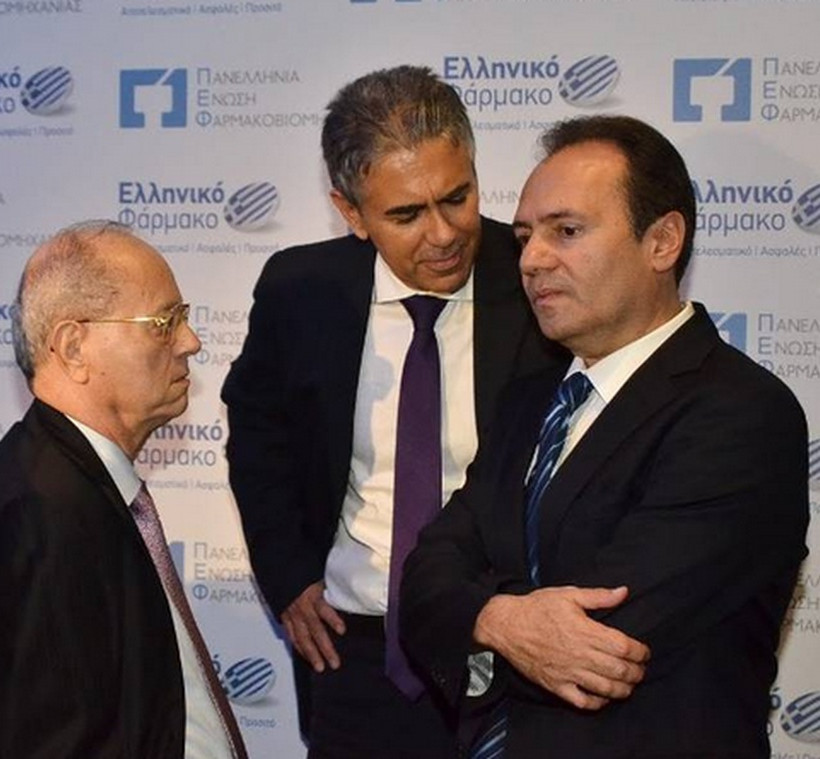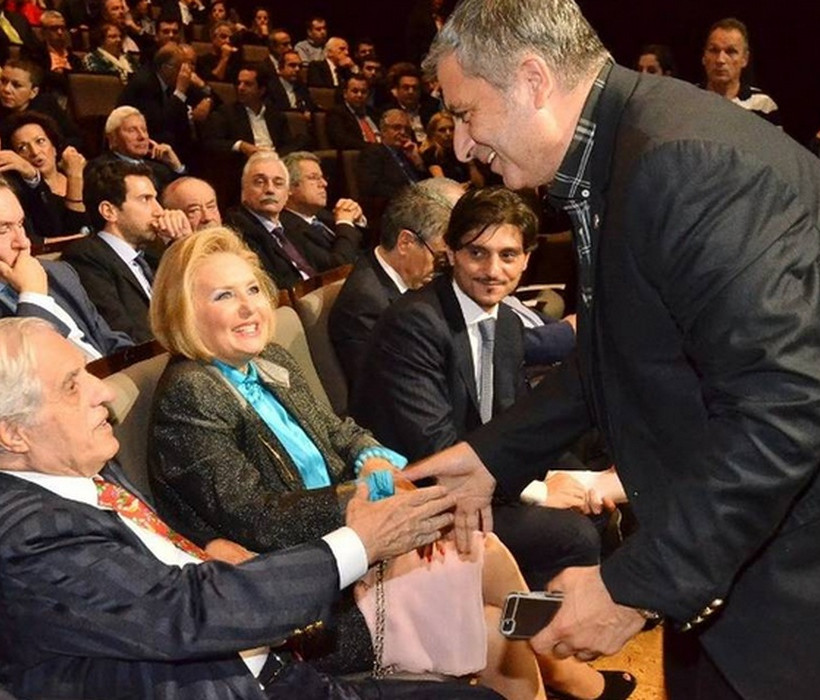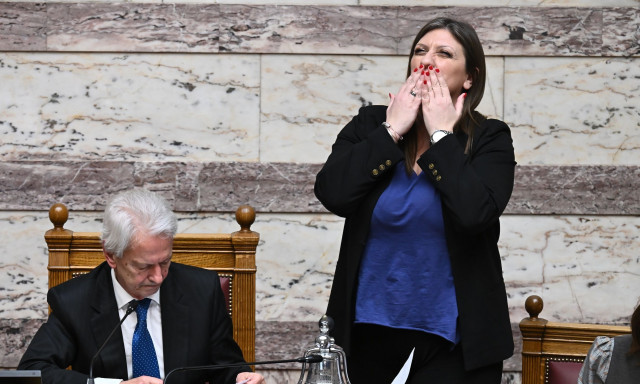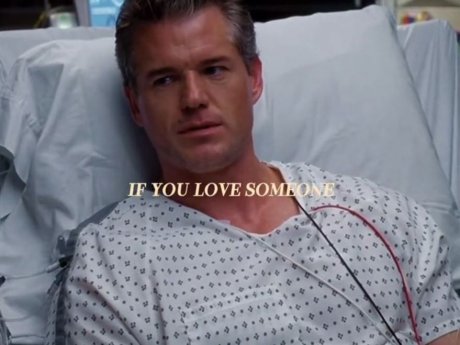The Greek medicines are warranty for health and development
In the crowded Badminton Theater, the night of Tuesday, November 18, in front of 3000 workers of the Greek pharmaceutical industry, of government representatives and representatives of the parties, as well as the medical and pharmaceutical community, the Pan-Hellenic Association of Pharmaceutical Industry (PEF), made it clear that Greek medicine may be a solution for health, social and economic development.
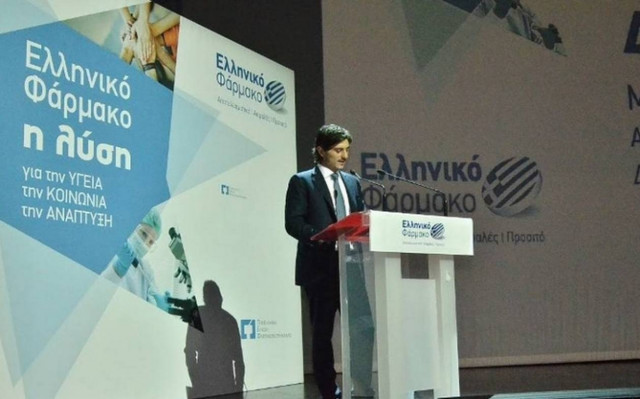
Common component of the placements of all party representatives, who welcomed the second event of PEF, dedicated mainly to workers in Greek pharmaceutical industry, was the need to support domestic drug production and the enhancement of Greek medicines.
This, however, so far, seems that is not taking place by the government.
Coordinator of the event was the journalist, Giannis Politis and spoke, sequentially, the PASOK MP and Chairman of the Social Affairs Committee of the House, Dimitris Kremastinos, John Baskozos from the Healthcare Sector of SYRIZA, the MP of Independent Greeks, Panagiotis Melas and the MP of Democratic Left, Maria Repousi. On behalf of Archbishop Jerome was delivered a welcome speech by the Protosyncellus of the Archdiocese, Father Simeon.
In the event were also attended Mr. Stergiou, Mrs. Asimakopoulou and Mr. Vlachos from ND, Mr. Kouroumplis from SYRIZA, and Mr. Chaikalis from AN.EL. Furthermore, the President of the Hellenic Medical Association Mr. Vlastarakos, the president of the Medical Association of Athens Mr. Patoulis, the president of the Panhellenic Pharmaceutical Association Mr. Lourantos, the president of the Association of Pharmaceutical Companies Mr. Frouzis and the president of the Pharmaceutical Forum of the Athens Chamber of Commerce and Industry (ACCI), Mr. D. Filiotis. The presence of Pavlos Giannakopoulos and Thanassis Giannakopoulos, patriarchs of the Greek pharmaceutical industry, was welcomed and emphasized by many speakers, including the Minister of Health, Makis Voridis, and the president of PEF, Theodore Trifon.
Mr. Kremastinos noted in his speech that the state should pay particular attention to the Greek pharmaceutical industry, which has already passed successfully the "test" of the new economic environment, by increasing exports and competitiveness. Also he referred specifically to the support of research, even with tax incentives for pharmaceutical companies.
Priority for SYRIZA, said Mr. Baskozos, when the country will be free from the memoranda and renegotiate the loan agreement, is to address the humanitarian crisis: free health services for citizens, access to quality medicines with reduced (or zero) financial participation for categories of diseases, while highlighting the social nature of Greek medicines, so that the Greek medicines to play an important role as a locomotive of the economy. The necessary conditions are the upgrading of EOF, a price policy to lend impetus to Greek medicines and productive reconstruction of the country, with the Greek pharmaceutical industry as spearheaded, based on respect for the ecology, justice and tax equality.
Mr. Melas referred to the need to safeguard the health of the Greek people, he characterized the support to the Greek pharmaceutical as essential, and he was opposed to large and horizontal cuts in the prices of Greek medicines, which already offered at a very good price, he said. Finally, Mrs. Repousi in her short greeting urged the state to start a creative dialogue with the Greek pharmaceutical industry.
The President of EOF, Dimitrios Lintzeris, said that the Agency despite staff shortages is trying to meet the requirements set out by this new production model, in which the Greek pharmaceutical industry plays a leading role with the development of extraversion.
He stressed that now there are no holds on pricing of drugs, for which were filed applications until October 15, while referring to the mistakes in pricing, argued that is an outcome of older Ministerial Decisions. Also said, that they accelerate the approval procedures, as have cleared the backlog from 2011 and 2012, and will soon complete the procedures and applications of 2013.
Regarding the production licenses for export, now are issued within 10 days, he said. Finally, he spoke about the quality checks of EOF in the 100 top-selling generic from which it was confirmed that the Greek generics are absolutely safe.
The objective for the next five years is the Greek medicine to become the first export product of the country, - now is in the second place -, gaining even greater innovation and added value, said on his part the Vice of PEF, Vasilios Katsos. The state should make movements with time horizon, rather than taking measures such as price reductions in a horizon of a semester.
In Greece, many times, we must convince for the obvious, like the excesses of the clawback and the rebate. The prescribing by active substance did not help to the penetration of generics and the pharmaceutical spending of 2 billion Euros is insufficient for the needs of the insured, he said.
The Vice President and CEO of the leading Greek pharmaceutical company, VIANEX, Dimitris Giannakopoulos, said:
"It is a great pleasure to meet again, in this second event, with the employees in Greek pharmaceutical industry. Congratulations on PEF for this event, which is firmly established. Together, the companies and their employees are giving the battle, in order the Greek medicines to endure and to continue to offer quality and effective treatments in Greek citizens.
From this step, last year, we appealed to the government to support the Greek pharmaceutical industry. We did not ask anything unreasonable, just not to put additional burdens beyond the effects of the crisis. Because we want the pharmaceutical industry to continue to help with a significant share to the GDP, to maintain jobs and to create new ones; to grow the extroversion of Greek pharmaceutical companies and to increase the country's total exports.
Unfortunately, we do not heeded, as the reality showed that the government continued the lenders' policy for austerity and the impairment of general health. Which was the result? Patients in despair, hospitals without drugs and materials, pharmacies with empty shelves, and a pharmaceutical industry which facing a "black" future.
The kick-off for the 'slump' of health was given by Andreas Loverdos; the term "homicidal law" that has been attributed to the prescription by active substance, says it all. A continuer of this policy and staunch supporter of Berlin, was the former Health Minister, Adonis Georgiades, - who last year told us a lot, but this year is not here to tell us why he did not implement his promises -. He did everything he could in order to bring the end of the Greek pharmaceutical industry, on the amenity of foreign interests.
So, we are faced with successive reductions in drug prices to levels that tend not to meet the cost of production, at least in Greece, as the government rather calculates the prices based on the prices of India or Pakistan.
Also, with the hike of the rebate and the clawback, the Greek pharmaceutical companies have reach to an unsustainable point.
In hospitals, the government insists on impractical measures, as the model of the one supplier, which has proved abortive. In fact, it makes the whole process even more unreliable since the individual health districts and hospitals hold competitions with 'locked' prices, and in effect are throwing the Greek companies outside the competitions.
Moreover, the government retains the grossly inadequate pharmaceutical expenditure, "stuck" at 2 billion Euros, causing negative consequences, like the shortages in pharmacies and the high financial participation that have to pay the insured. Adding the effect of substitution of traditional and well-established drugs, the inconvenience for patients is growing, as are forced to change their treatments that so many years trusted. On the other hand, the pharmaceutical industry is obliged to pay unaffordable rebates for sales that the state pays with a delay of 2 and 2.5 years.
"The transactions with the public have risks," he would say probably in this case, the Minister of Health, Mr. Makis Voridis. This is the severity by which seems to treat the pharmaceutical care of the Greeks, as he did also with the scandal of the transfer of the hospital, "Henry Dunant" to Piraeus Bank and transfer of debts on the backs of suppliers. We want reliable and serious State, not a State with risks.
In these circumstances of "war", VIANEX remains faithful to the ideals advocated in its 90-year course. We say 'no' to layoffs and salary reductions, we continue to offer high quality Greek medicines, with new investments, new product design and we increase extraversion.
All these years, we operate with a view to protecting the health of Greek citizens, without hearing either a "thumbs up."
It is obvious, now, that our values and goals are not consistent with those of the government, which leads the Greeks in misery...
Be sure, however, that the time of change has come", concluded Mr. Giannakopoulos, who was interrupted several times by applause by the audience.
The speech of Dimitris Demos, Vice President of PEF, was focused on the tender for the procurement of drugs in public hospitals. He talked about persistence to a model of one bidder, which is a world novelty, without even penalized if he won't meet in the predetermined deliveries. He stressed that if the three competitions that are currently underway by the Health Procurement Commission will be completed with this procedure, then the next day 2,500 workers will not have their jobs.
The chairman of PEF, Theodore Trifon, announced his imminent meeting with Prime Minister Antonis Samaras, in order to give him PEF's proposals on the fundamentals of pharmaceutical expenditure adjustment to realistic levels, the reduce of clawback rates and rebate, and to stop the continuous price reductions especially on cheap drugs.
Also, the Greek pharmaceutical industry seeks to amend the policy on generic, which causes serious side effects for the firms, with both the framework for the competitions in hospitals, and the prescription by active substance. Specifically on the subject of active substance, the measure leads to the substitution and to the import of the generics in the Greek market by big importers, and the country spends Euros, he said. Later, PEF will request specific comments on its proposals by all parties.
Concluding his speech, Mr. Tryphon reiterated that the Greek pharmaceutical industry can and should reinforce the Greek economy, as contributes to the GDP with a greater multiplier than the shipping and tourism. The government should not take decisions on the logic of cost-benefit analysis. Finally, he said, "we did not move our head offices to Luxembourg; our funds are here."
Listening to the positions of the Greek pharmaceutical industry representatives, the Health Minister, Makis Voridis, stressed that the state wants a serious and lively pharmaceutical industry. "We believe very much in the Greek pharmaceutical industry, which we want to live a long life and to be profitable."
Regarding the pharmaceutical expenditure of 2 billion Euros Mr. Voridis argued that amounts to 1% of GDP and it reaches the average of European countries and reminded that in the Medium Term was originally scheduled for a pharmaceutical expenditure of the order of 1.960 billion Euro. Regarding the containment of pharmaceutical expenditure, stated that the structural measures of June have started and operated, as the ceiling in prescribing in order to avoid the induced demand, something which decreased the exceeded pharmaceutical expenditure, to 6 million Euro in September from 21 million Euro in the summer.
Also, Mr. Voridis categorically stated that the purpose of government is to abolish the clawback, but only if all structural measures, can work.
For the competitions of the hospitals, he noted that it has taken legal and regulatory submissions from PEF, of which will consider carefully. However, it stated that "we believe a lot in Greek pharmaceutical industry, but we must every time to weigh the interests of the taxpayer, the insured and the patient."
The event was closed by the chairman of PEF, Mr. Tryphon, honoring the Greek patriarchs of pharmaceutical industry, -as he characterized them -, Messrs Pavlos and Thanassis Giannakopoulos, creators of VIANEX, Mr. Dimitris Pentafragkas, creator of ELPEN and Mr. Stavros Demo, creator of DEMO. "If it was not them, we would not be here now," he said.
It is worth noting that PEF is funding a 3-year program of the Ministry of Education, on the community school, as announced during the event, with a focus on health education in schools and the interface structures of education and health. The message is "no child without food, no child without the necessary drug" as he said.

